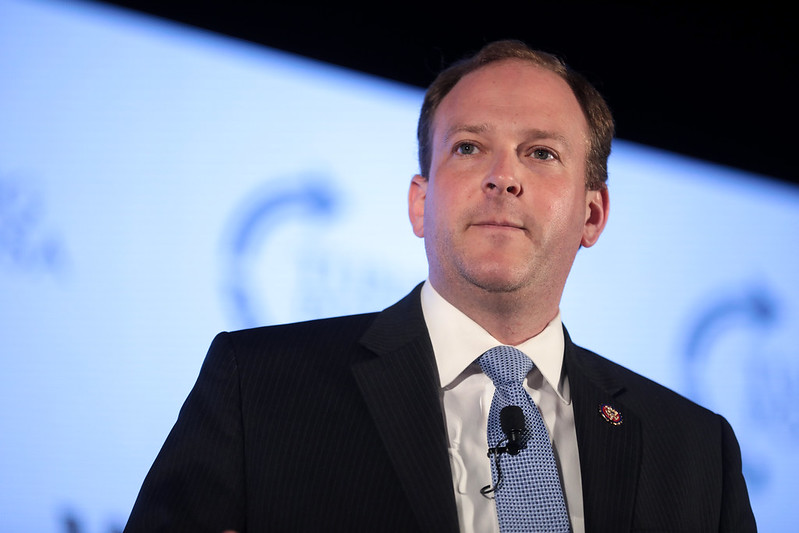On Monday, April 25th, President Barack Obama tweeted out the following message to nearly 74 million followers on Twitter:
We’re already seeing the effects of climate change. Denial is unacceptable. #ActOnClimate pic.twitter.com/k3sphu7KgC
— Barack Obama (@BarackObama) April 25, 2016
The tweet garnered thousands of shares and likes, and on the surface it appeared to be a genuine plea for action on climate change. But as we’ve seen all too often from this administration, what they say in public rarely matches what takes place behind closed doors.
Less than one day after President Obama tweeted out that message on climate change, David Sirota and Ned Resnikoff from the International Business Times aimed a spotlight at the Obama administration’s hypocrisy in an investigative piece that exposed again the fossil fuel industry’s influence over our government. Prior to that, the Public Accountability Initiative had revealed the massive influence that the industry had over the government’s assessment of the economic impacts of offshore drilling.
According to the IB Times report, the Bureau of Ocean Energy Management’s recent analysis of the economic benefits of increased offshore drilling in the Gulf of Mexico and on the Pacific Coast near Alaska was funded partly by the fossil fuel industry. The analysis is currently being used by the administration to sell the project to the American public.
From the IB Times:
Buried in the BOEM report’s fine print, though, were footnotes shedding light on how the bureau came to its conclusions: it used studies from the same fossil fuel industry that could benefit from the expansion. Eight of the nine economic analyses cited by government regulators in their report were produced by authors or organizations with links to the fossil fuel industry — which has been lobbying the federal government on drilling issues in the lead-up to a decision…the fossil fuel industry’s links to the studies underscored concerns about so-called cognitive capture: the growing effort by industries to quietly shape the basic research on which public policies are predicated.
…
In the months before the controversial move, fossil fuel companies such as the Shell Oil unit of Royal Dutch Shell and industry associations such as the American Petroleum Institute (API) lobbied the federal government on drilling, alongside an advocacy group that has links to Koch Industries. Although the government backed off a plan to open up drilling off the Atlantic coast of the U.S. Southeast, the move to expand drilling in the Gulf and near Alaska was a win for the oil and gas industry. However, the decision in March prompted protests both from national environmental groups concerned about the prospect of increased carbon emissions and from local activists in the Gulf Coast region who are worried about the possibility of new spills.
As Sirota and Resnikoff point out, a similar scenario played out in the years following the Exxon Valdez oil spill, where Exxon was found to have funded their own studies on how paying punitive damages to the victims and government would negatively impact the economy. However, the Supreme Court saw right through Exxon’s lies and ordered the company to pay.
The International Business Times reached out to the organizations who were cited in the research, and they all maintained that their numbers were sound. Some claimed that opening up more of the Gulf of Mexico for oil drilling would create as many as 230,000 new jobs resulting in an economic benefit of $18 billion.
However, the IBT reporters also mention that independent analyses of oil-funded research have shown that the industry routinely inflates projections and often includes revenues from oil that is impossible to extract. (Recall the job numbers touted by TransCanada in their attempts to pitch the Keystone XL Pipeline which were inflated by 1,000%.)
The problem has less to do with the over-inflated numbers from the industry and more to do with the fact that the federal government blindly used them in the report. And they didn’t do this by accident.
The industry spends millions of dollars in lobbying and gives millions in direct campaign contributions to politicians each year to make sure that this happens. That is what the current political system has become, and as long as the industry is allowed to write as many checks as they can, the likelihood that their own flawed research will be used to justify environmental destruction will continue to proliferate.
As President Obama said in his tweet, denial IS unacceptable, but so is the doublespeak coming from this administration. We can’t have it both ways.
Image source – Grist.org
Subscribe to our newsletter
Stay up to date with DeSmog news and alerts







